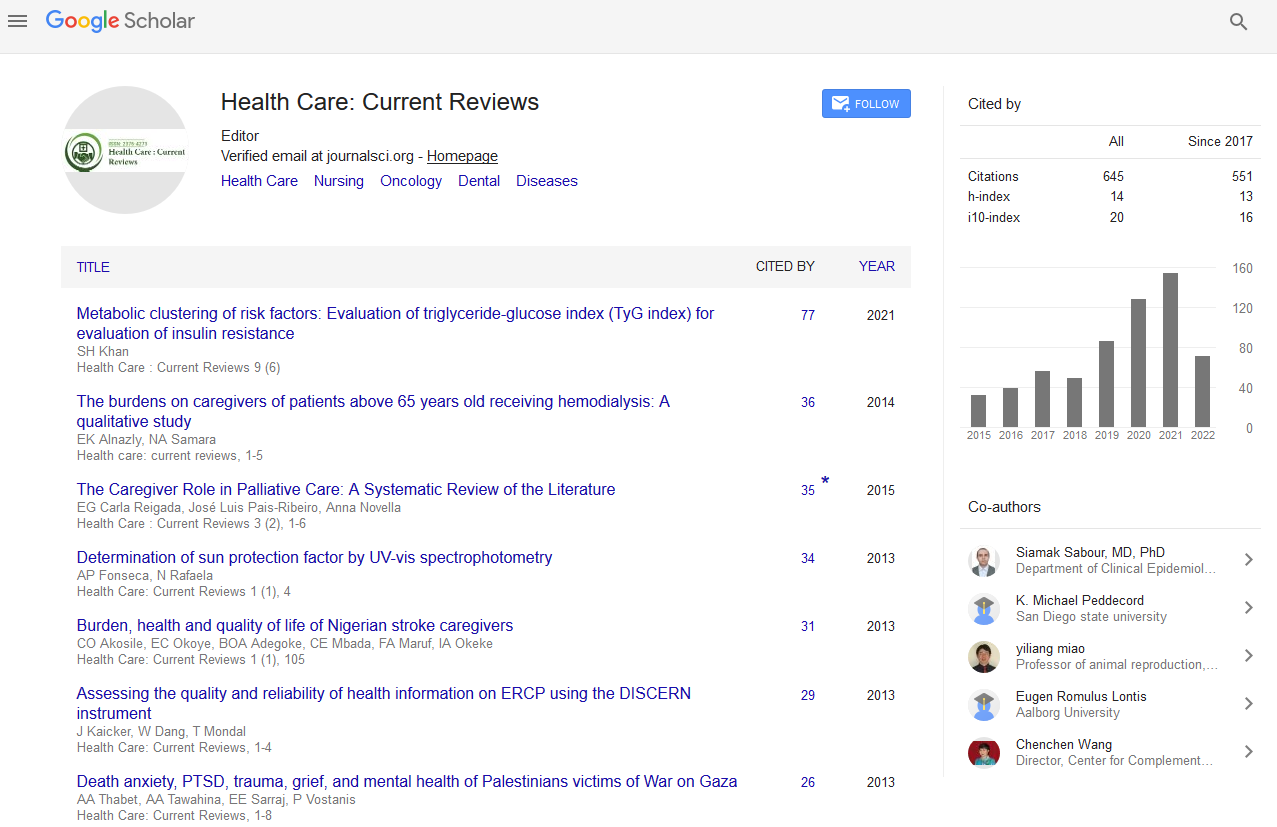PMC/PubMed Indexed Articles
Indexed In
- Open J Gate
- Academic Keys
- RefSeek
- Hamdard University
- EBSCO A-Z
- Publons
- Geneva Foundation for Medical Education and Research
- Google Scholar
Useful Links
Share This Page
Journal Flyer

Open Access Journals
- Agri and Aquaculture
- Biochemistry
- Bioinformatics & Systems Biology
- Business & Management
- Chemistry
- Clinical Sciences
- Engineering
- Food & Nutrition
- General Science
- Genetics & Molecular Biology
- Immunology & Microbiology
- Medical Sciences
- Neuroscience & Psychology
- Nursing & Health Care
- Pharmaceutical Sciences
The association between monocyte counts and the framingham risk score among middle-aged and elderly individuals in Korea
Joint Event on 3rd International Conference on Medical Sciences, Hypertension and Healthcare and World Congress on Organ Transplantation and Artificial Organs
August 24-25, 2018 Tokyo, Japan
Jung-Hwan Kim
Yonsei University, Republic of Korea
Posters & Accepted Abstracts: Health Care Current Reviews
Abstract:
Background & Aim: Inflammation is an important factor in aging, age-related diseases such as atherosclerosis, cardiovascular disease and cancer. WBC count is an inexpensive, simple biomarker of systemic inflammations. But it is unclear which component of WBC count can predict cardiovascular diseases. Monocyte is a kind of the mononuclear phagocyte system, a group of cell types shared ontogeny at various differentiative phases with roles in development, inflammation and host immunity. The activation of monocytes and their differentiation into lipid-laden macrophages are essential reactions in the formation of atherosclerotic lesions. FRS (Framingham Risk Score) is a widely accepted tool and used to predict the risk of coronary disease such as myocardial infarction, cardiovascular death in the next 10 years. This risk assessment scores were estimated based on the age, gender, smoking, lipid profile, systolic blood pressure, and whether they were receiving antihypertensive therapy. The aim of this study was to assess monocyte counts with FRS among middle-aged and elderly individuals in Korea. Method: We studied a total of 412 participants (age???50 years without diabetes mellitus) who underwent routine health examinations. Results: The mean age of the study population was 57.8 years (SD 6.6) and 57.1% were male. In the multivariable regression analysis, the ? for Framingham 10-years risk percentage was 0.262% (P=0.006) with monocyte (%) increment after adjusting for confounding variables. Monocyte counts were associated with an increased risk of coronary disease. Conclusion: We found that the monocyte count of WBC sub-types is an independent predictor of cardiovascular risk in the middle-aged and elderly. Accordingly, this result suggested that the early detection of increased monocyte counts is important for the assessment of cardiovascular health management.
Biography :
Jung-Hwan Kim has obtained Master’s degree in Family Medicine Resident from Yonsei University College of Medicine in Seoul, South Korea. His research interests are in health examination programs for the early detection and treatment of diseases. He is the Resident of Department of Family Medicine, Gangnam Severance Hospital in Seoul, South Korea.
E-mail: stvincent7@daum.net


